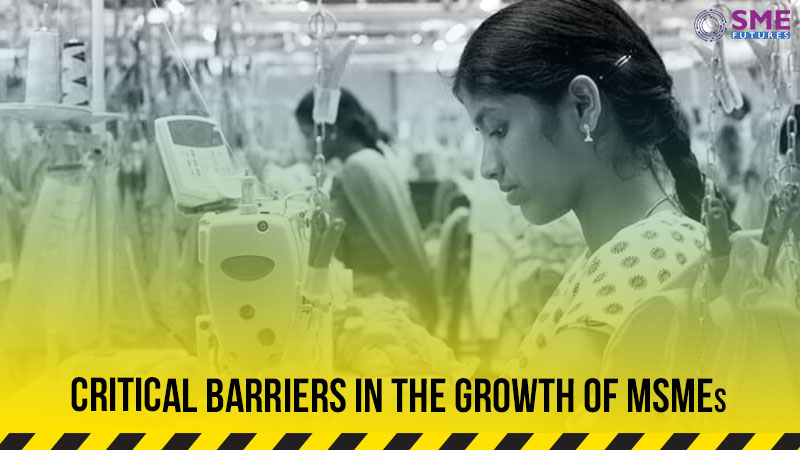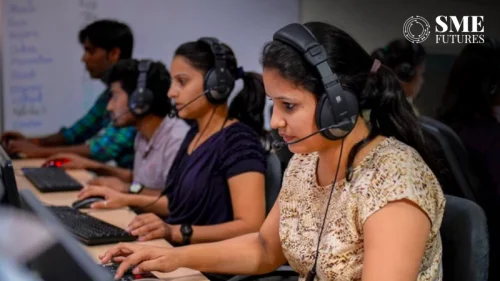If you ever find yourself stuck in a room, look around carefully. You will find a way to escape to a whole new world. That way to escape is nothing but the fourth wall. In the business sector, that fourth wall is Entrepreneurship which allows you to use your creativity and imagination towards generating an idea.
The hard fact is, ideas can come easy, execution of it is what would help anticipate barriers to further get it implemented. Imagine a country that is economically developed, industries flourished with massive demand from international market. Sounds difficult? Yes. Impossible? Definitely Not!
I mean, who wouldn’t like to see this country being represented at a global platform for its exports and product quality matching up to the international standards?
The growth that India has seen in terms of its manufacturing sector, over the years has been tremendous. Taking reference from the Index of Industrial Production (IIP), from 2.8% in 2015-16 to 4.6% in 2017-18 (2011-12 as a base year), the growth of manufacturing sector has been huge. Talking about the service sector, during 2017-18, the value of exports from MSME related products reached to $147,390 million. The data itself is a reason enough to understand the potential this nation holds to promote entrepreneurship by encouraging the growth of Micro, Small and Medium Enterprises (MSMEs) in the country.
MSMEs contribute not just in terms of employment generation, but increasing exports and the GDP. There are about 63 million MSMEs that employ closely 110 million people. They operate within an ecosystem of resources such as funding, manpower and technology. The government is providing all these resources that would help in the smooth functioning of MSMEs.
However, when compared to other economies like China and Thailand, Indian MSME’s are still lagging behind. What is that aspect of MSME that has still remained untapped? What are those barriers that have not been addressed, till date?
Factors like funding and technology won’t essentially be considered as barriers anymore because the government is providing all the required support. MSMEs now have access to credit to buy the best technology, but only if they make use of the government schemes efficiently. This is where barrier lies in.
The government has introduced various schemes to support funding and technological requirements for the enterprises. Technology Upgradation and Quality Certification is one such scheme that would enable them to manufacture quality products. But a lot of these enterprises are not being able to make use of these schemes either due to lack of awareness or understanding.
There is no denying that hurdles and barriers definitely exist. But with all the facilities available, MSMEs are capable of achieving international benchmarks in terms of manufacturing and exports. In spite of a considerate scope of growth with the availability of required support, MSMEs lag behind in understanding on how to leverage that support.
The MSME sector is highly labour intensive, still a major chunk of the population is unemployed. If there are so many facilities available, then why the issue of unemployment still exists? Opportunities are available but the knowledge and ability to identify those opportunities is missing.
‘Make in India’, ‘Digital India’, Employment Generation Schemes, everything is available. But how many MSMEs are actually using these schemes to their benefit.
There is an immediate need to set up a framework that allows MSMEs to not just make use of the schemes and policies designed by the government, but also understand as to how to make efficient use of the same. Right now, when everything is served on a platter, all an MSME has to do is pick what is required and use it for the benefit of the economy.
The government has been extensively working towards the growth of MSMEs in India by introducing various schemes that facilitate employment generation and credit assistance for starting an enterprise. It further goes on to reflect that facilities are available, but how’s it being utilised is making all the difference.
If the enterprises have access to credit but they lack the ability to make efficient use of the credit, then the basic essence behind such schemes is questionable. Hence, it is always recommended to plan the investment in advance so as to avoid interruption at the execution stage. This is how enterprises should figure out if the idea is feasible in terms of money or not. However, a prior understanding of the scheme is necessary in order to apply it to the idea.
In order to boost the industrial development in the country, mentorship and guidance is much needed since that would facilitate setting up of benchmarks for themselves as per international standards. The industry and government should be in sync while framing the policies so that they understand the areas that need immediate attention. Moreover, it is to be ensured that the enterprises are trained to understand and explore the different avenues provided to them by the government.
There is no denying that barriers exist. But not in terms of resources, in fact guidance and mentorship. Government is providing all the support in terms of its resources, but when people won’t know how to make use of these resources, things will not work.
Note: Author is the Co-founder of Mustang Socks & Accessories and also the Vice Chairperson at FICCI Flo, Mumbai. Views expressed in this opinion piece are personal.











